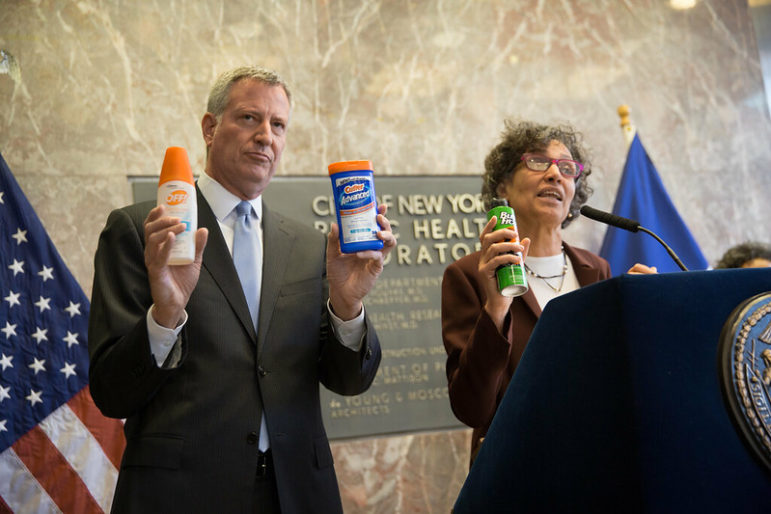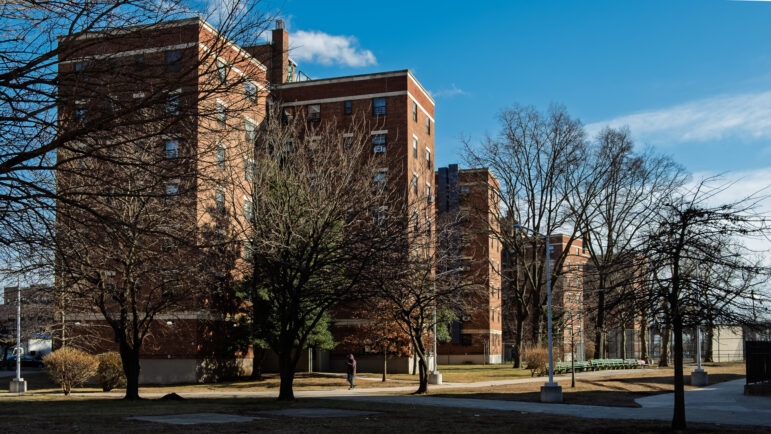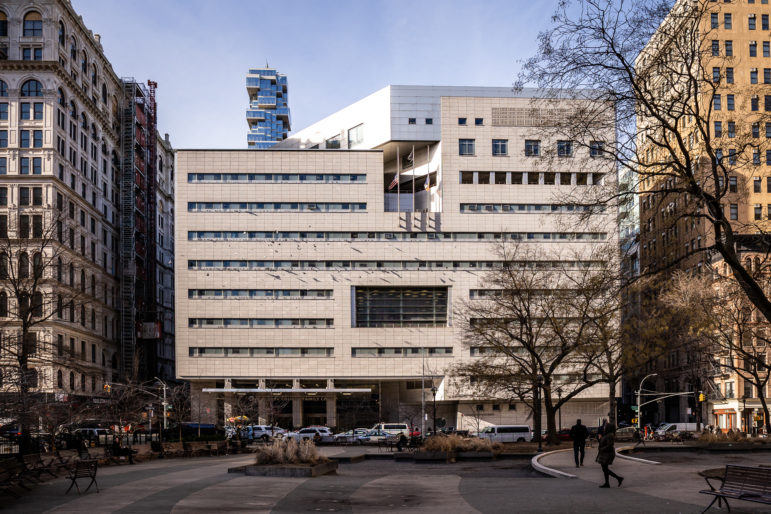As Max & Murphy discuss in their latest issue brief, health has rarely been a big topic on the campaign trail but often had a defining effect upon mayors.

Mayoral Photo Office
Mayor de Blasio addresses workers at Elmhurst Hospital Center last April.Health is rarely a top-tier issue in New York City campaigns. Housing, schools, policing, taxes—those always top the list. The city’s efforts to prevent infectious disease, reduce chronic conditions or keep the largest public hospital system in the country running rarely get much attention. That will likely be different in 2021, after a health emergency killed thousands and utterly transformed life in the five boroughs and around the world.
Four mayoral candidates have already published policy papers dealing with health and another has made health central to his political identity. Candidates focus first on COVID-19, but they also have made proposals for longer term changes: shoring up insurance coverage, creating more accessible health resources, developing a new and diverse health workforce, addressing health issues with a heavy racial skew like maternal mortality. Some offer specific policies on AIDS, opioids and treating gun violence as a public health issue.
Among the major Democratic mayoral candidates, Shaun Donovan, Dianne Morales, Scott Stringer and Andrew Yang have published full health policies. Eric Adams last week called for 100 new community clinics, and has advocated for years for the government to help New Yorkers eat healthier—specifically, Adams is an adherent to a plant-based diet. Spokespersons for Kathryn Garcia and Ray McGuire said they would roll out health policy plans before the June 22 primary; McGuire included a few health-related ideas in his quality-of-life plan. The Maya Wiley campaign didn’t respond to inquiries about a stand-alone health policy, but health is an element of Wiley’s “community care” proposal.
Max & Murphy Break Down Health Issues in the 2021 Race
While COVID-19 will forever define his mayoralty, it was not the only health story of the de Blasio era.
There are stark differences in health outcomes around the city, translating most dramatically into an 11-year gap in life expectancy between Brownsville and Greenwich Village. (The city’s Community Health Profiles detail these disparities.) As part of his focus on inequality, the mayor in his first term targeted health disparities with new programs, research on racial bias in healthcare, and three “neighborhood health action centers” in communities with especially poor health outcomes. In fiscal year 2019, those centers recorded 43,000 visits.
On mental health, the mayor and First Lady Chirlane McCray in 2015 launched ThriveNYC, a program whose large price tag and fuzzy metrics have come in for harsh criticism.
During the de Blasio years and before the pandemic, the Department of Health and Mental Hygiene also dealt with an Ebola scare, several outbreaks of Legionnaires’ Disease, the emergence of the Zika virus and the NYCHA lead paint scandal. The Department, with a 6,900-person payroll and a budget of $1.9 billion, has an enormous portfolio, covering everything from conducting restaurant inspections to recording births and deaths and from overseeing animal shelters to monitoring pharmacy sales to detect outbreaks of illness.
With its 11 acute-care hospitals and dozens of other facilities, Health + Hospitals also faced challenges well before COVID-19, in the form of a fiscal crisis that de Blasio headed off with an infusion of city money and some cost cutting—steps that had stabilized the system’s finances before the pandemic confronted the public hospitals with a rush of emergency patients and a drought of more lucrative surgical customers.
The public hospitals, which employ 40,000 people, figure prominently in one of de Blasio’s signature initiatives: NYC Care, a program to link the city’s 300,000 uninsured people, including undocumented immigrants, to health through the H+H facilities. At last count, 35,000 people were enrolled in the program. Public hospitals are also a bulwark against a wave of hospital closures that shuttered 16 hospitals with the loss of 20,000 beds since 2000.
De Blasio was not the first mayor to find health policy to be a complex challenge.
Even though it was not a significant campaign issue, health policies ranked among Mayor Bloomberg’s lasting achievements, like the smoking ban, restaurant ratings, calorie counts and the trans fats ban. He also suffered significant defeats on health issues, like the soda ban and his congestion pricing plan, which was partly pitched as a way to reduce asthma.
Mayor Giuliani endured criticism for his use of the insecticide Malathion to deal with the 1999 West Nile Disease outbreak. And Mayor Koch, whose handing of the early days of the AIDS crisis won him many enemies, said one of his mistakes as mayor was closing Sydenham Hospital in Harlem.
Read more on this topic:
- The Other Communicable Diseases —Besides Coronavirus—That Call NYC Home
- Decades of Shrinking Hospital Capacity ‘Spelled Disaster’ for New York’s COVID Response










2 thoughts on “Video: Here’s to Your Health, a Bigger Issue in 2021 Than Ever Before”
When the disaster has fallen, they will find a way to respond. however, better late than never!
It’s great to see people are finally starting to look at the numbers, instead of just masking how things are going during the pandemic